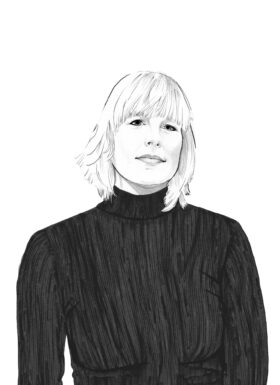-
Ammodo Science
Award for groundbreaking research2024 -
Ammodo Science Award
The Ammodo Science Award for groundbreaking research is intended to stimulate potentially groundbreaking research. Such research is usually the result of team work, and for that reason this Award is for research being carried out by a group of researchers working together, and is intended to recognise the contribution of every member of the group. The Award is presented every two years in four scientific domains: Biomedical Sciences, Humanities, Natural Sciences and Social Sciences.
-
Nomination & Selection
Each edition, the Ammodo Science Award for groundbreaking research includes a cash prize of 1,600,000 euros for each of the science domains Natural Sciences and Biomedical Sciences and a cash prize of 800,000 euros for each of the science domains Humanities and Social Sciences. The rectors of the fourteen Dutch universities affiliated to Universities of The Netherlands (UNL) may nominate a maximum of one research project per scientific domain.
-
Winners
The Ammodo Science Award for groundbreaking research focuses on potentially groundbreaking research and ensures that all researchers involved in the winning project are recognised and rewarded.
Roshan Cools
Laureate Social Sciences 2017

Roshan Cools (1975) studied Experimental Psychology and Neuropsychology first in Groningen and then in Cambridge in the UK, where she was awarded her PhD. She went on to do two years of postdoctoral research at Berkeley University in America before in 2007 being appointed a researcher at the Radboud University Nijmegen Medical Centre and the Donders Institute, Nijmegen. Her appointment as Professor of Cognitive Neuropsychiatry followed in 2011.
Cools has received numerous sizeable scholarships and prizes, such as a Vici grant of €1.5 million from the Dutch Organization for Scientific Research (NWO) in 2015, a Royal Society University Research Fellowship of €700,000 and a James McDonnell Scholar Award of €500,000.
WebsiteResearch focus
Roshan Cools is searching for the biological basis of our will power: how do our brains establish a balance between command and unrest, between control and creativity?
The cogs of human will power
For centuries disciplines such as philosophy, law and psychiatry have been preoccupied with the mystery of the human will. What motivates the brain to concentrate patiently in order to accomplish a difficult task? How do brains find and then maintain the balance between concentration and the need to remain sensitive or alert to impulses from our surroundings?
Roshan Cools approaches such questions as a versatile neuroscientist. With innovative experiments she examines, for example, the relationship between dopamine, a signal substance in the brain, and our ability to perform various tasks through the exercise of our will.
In such a way she has investigated what happens to the cognitive abilities of Parkinson’s disease patients when taking dopamine-boosting medication to prevent trembling limbs. To many people’s surprise there were large differences between patients. Tasks requiring concentration were sometimes performed better by those taking such medication, but the performance of other tasks – those requiring more flexibility of the brain – was suddenly less successful.
At the same time, the response of individual subjects showed great variation in these differences. Those with Impulsive personalities performed concentration-demanding tasks better with dopamine enhancers when they were promised a reward. But people who normally displayed higher levels of self-control were often less able to motivate themselves to complete such a task whilst taking the same medication.
In a world where our minds are increasingly stimulated by external factors, and it is becoming more and more important to find a good balance between being open and the ability to retreat, the questions to which Cools is searching for answers sound more intriguing than ever.